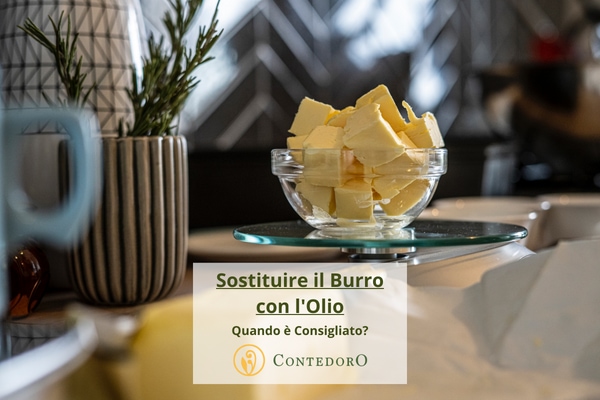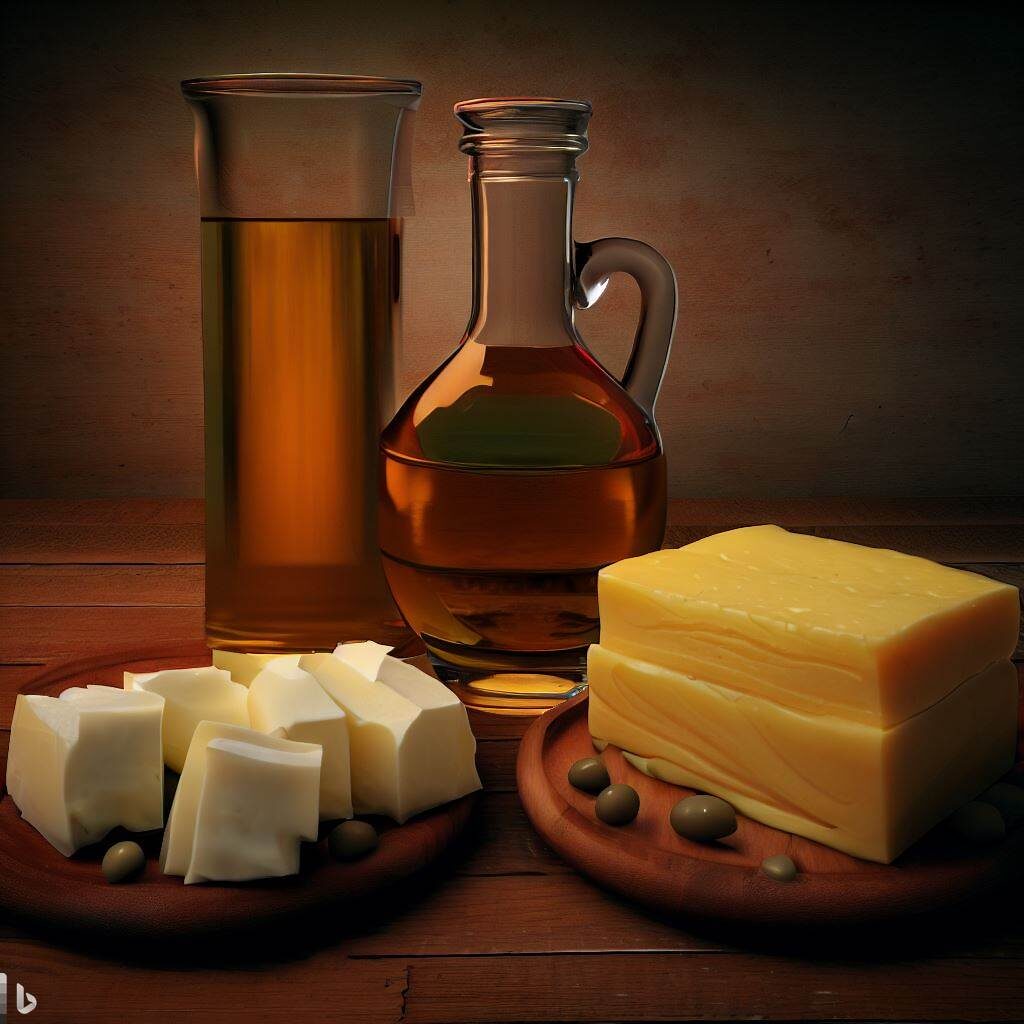Replacing Butter with Oil, When It’s Recommended to Do It

Reading time 2 minutes
INDEX
- Advantages of oil over butter
- When it is recommended to replace butter with oil
- How to replace butter with oil
- Considerations for substituting butter for oil
Butter is a traditional ingredient in the preparation of many dishes, but oil can offer health and flavor benefits. In this article, we will explore situations in which it is recommended to replace butter with oil and how to do so most effectively.
Advantages of oil over butter
Oil has several advantages over butter, especially when it comes to health and flavor:
- Heart Health: Olive oil, for example, is rich in monounsaturated fats that can help reduce bad cholesterol (LDL) and increase good cholesterol (HDL), reducing the risk of cardiovascular disease.
- Higher smoke point: Oils such as canola oil or olive oil have a higher smoke point than butter, which means they withstand high temperatures better without degrading.
- Versatility: The oils can be used in a wide variety of recipes, providing several options for butter substitution.
Read also: Extra Virgin Oil Expiration Date, When to Avoid Using it in Cooking
When it is recommended to replace butter with oil
Here are some situations in which it is recommended to substitute butter for oil:
- Cooking at high temperatures: Because oil has a higher smoke point, it is more suitable for cooking at high temperatures such as frying.
- Vegan recipes: Oil is a vegan alternative to butter and can be used to create tasty and healthy dishes for those on a vegan diet.
- Mediterranean diet: If you want to follow a Mediterranean diet, which emphasizes the use of healthy fats such as olive oil, it is recommended to replace butter with oil in many recipes.
How to replace butter with oil
To replace butter with oil effectively, follow these tips:
- Substitution ratio: In general, use 3/4 cup of oil for each unit of butter called for in the recipe. For example, if a recipe calls for 1 cup of butter, use 3/4 cup of oil.
- Choosing the right oil: Choose an oil with a flavor and nutritional profile suitable for the recipe. For example, extra virgin olive oil is ideal for salads and vegetable dishes, while canola or sunflower oil is suitable for cooking and baking.
- Keep consistency in mind: Because oil is liquid at room temperature, you may need to modify the recipe slightly to achieve the desired consistency. For example in a cookie recipe, you may need to add a little more flour to compensate for the increased liquidity of the oil.

Considerations for substituting butter for oil
Despite the advantages of oil, there are some situations where replacing butter with oil may not be the best choice:
- Recipes calling for a creamy texture: Butter imparts a creamy, smooth texture to many desserts and sauces. In these cases, substituting butter for oil may compromise the desired texture.
- Butter flavor: Butter has a distinctive flavor that can be difficult to replicate with oil. If butter flavor is crucial to the recipe, it may be best to use butter or look for specific alternatives to butter, such as margarines without hydrogenated fats.
- Solidification: Butter solidifies at lower temperatures than oils, which can affect the texture of some dishes, such as shortbread or croissants, that require the use of solid fats.
Read also: Homemade Olive Oil, Here’s How in 4 Steps
In conclusion, replacing butter with oil can offer numerous benefits, including improved heart health, greater versatility, and a higher smoke point. However, it is important to consider the specific needs of the recipe and select the most appropriate oil to ensure the best possible results.

Alfio Lo Conte
Tecnico ed esperto degli oli extravergini di oliva, iscritto nell’Elenco Nazionale sezione Campania.
Maestro di frantoio con diploma, conseguito presso International Extravirgin Agency.
Read more articles by: Alfio Lo Conte
Recent Comments